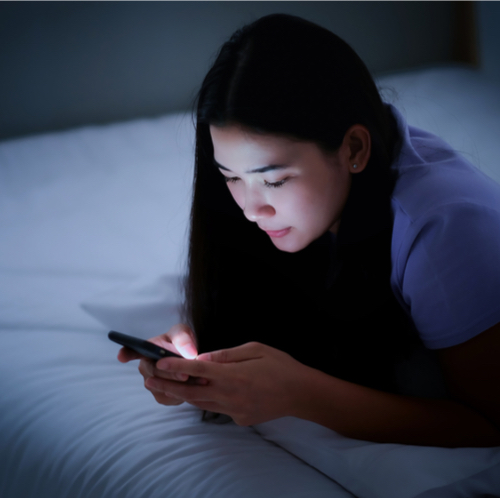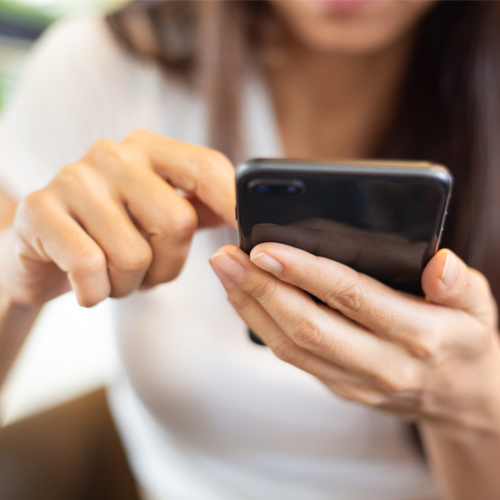
Blue Light
First and foremost, blue light is one of the biggest threats to your complexion as it radiates out of almost every screen you use. “The main problem is the blue light from your smartphone, which is high-energy visible (HEV) light, and it is said to penetrate the skin more deeply than sun rays and damage collagen and elastin,” explains cosmetic surgeon Dr. Robert Goldman. Not only can exposure to blue light provoke melasma which may lead to discoloration on the skin, but it can also shrink skin cells which may expedite the aging process. “Even exposures as short as 60 minutes can trigger these changes,” warns clinical dermatologist Dr. Ailynne Marie Vergara-Wijangco. “One study linked blue light exposure to more swelling, redness, and pigment changes in people with darker skin.”
While it may seem silly, applying facial sunscreen before phone use can be beneficial for preventing blue light damage, suggests Vergara-Wijangco. Limiting phone screen time to less than an hour a day can also be useful, as well as purchasing a blue light protector for your phone to minimize exposure.
Brows
Like cheek filler, brow lifts are also becoming a celebrity trend that has gained traction. This exercise may enhance your eye area for a fresh, wide awake look even after you’ve gotten five hours of sleep:
Place your index and middle fingers over your eyebrows and push the skin down. While you’re doing this, lift your eyebrows up and down, kind of like a surprised look. Do this 10 times for six sets.
Sleep Deprivation
More of a byproduct of screentime, your sleep may also suffer from phone usage. Sleep deprivation over an extended period of time can have a profound negative effect on your complexion, expediting aging and making undereye bags and sagging more pronounced. “Quality sleep is crucial for supporting cell turnover and skin rejuvenation. During sleep, our skin’s blood flow increases and the organ increases the protein synthesis which rebuilds collagen and repairs damage from UV exposure, age spots and wrinkles,” explains consultant dermatologist Rachael Burns.
She notes that blue light from your phone can make it more difficult to fall asleep at night, so it’s important to limit your screen time in the evening and use “night mode” on Apple devices to reduce the effects. “If you’re a Microsoft user, then simply adjust your blue light emissions via the settings tab,” says Burns. Additionally, buying a bluelight screen for your devices can help filter out these rays, making it easier to calm your mind after a long day of using screens so you don’t run the risk of invoking premature aging on your skin.


